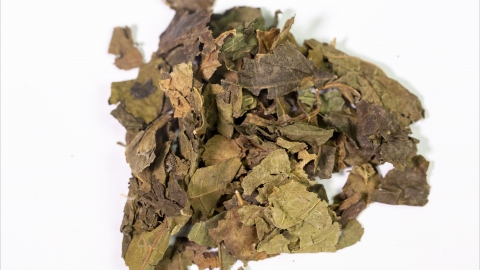What are the benefits and contraindications of drinking mulberry leaf steeped in water?
Generally, the benefits of drinking mulberry leaf tea include clearing heat from the liver and improving vision, clearing lung heat and relieving dryness, delaying aging, promoting digestion, and lowering blood sugar levels. Contraindications include individuals with spleen and stomach deficiency-cold, those allergic to mulberry leaves, women during menstruation, pregnant and lactating women, and individuals with hypoglycemia. Detailed explanations are as follows:

I. Benefits
1. Clearing Heat from the Liver and Improving Vision
Mulberry leaves are rich in beta-carotene, flavonoids, and other substances that can scavenge free radicals and protect the liver from oxidative damage. Drinking mulberry leaf tea benefits eye health, helps relieve eye fatigue, and protects vision.
2. Clearing Lung Heat and Relieving Dryness
Mulberry leaves are relatively cool in nature and help dispel wind-heat, clear lung heat, and moisten dryness. Drinking mulberry leaf tea can help alleviate symptoms such as headache, sore throat, fever, and cough in the early stages of a wind-heat type cold.
3. Delaying Aging
Mulberry leaves can enhance the activity of superoxide dismutase in the body. Drinking mulberry leaf tea can prevent the production of harmful substances, reduce or eliminate accumulated lipofuscin in the body, enhance the body's tolerance, and delay aging.
4. Promoting Digestion
The dietary fiber in mulberry leaves helps promote gastrointestinal motility and improve digestive function. Drinking mulberry leaf tea can moisten the intestines, relieve constipation, and alleviate other digestive issues.
5. Lowering Blood Sugar
Mulberry leaves contain abundant N-sugar compounds and flavonoid components that inhibit blood sugar elevation. Drinking mulberry leaf tea can stimulate insulin secretion, slow insulin breakdown, and lower blood glucose levels.
II. Contraindications
1. Individuals with Spleen and Stomach Deficiency-Cold
Mulberry leaves are cold in nature, and individuals with spleen and stomach deficiency-cold may experience increased burden on the digestive system after consumption, leading to worsened symptoms such as loss of appetite, diarrhea, and abdominal pain.
2. Individuals Allergic to Mulberry Leaves
Some individuals may be allergic to mulberry leaves, and drinking mulberry leaf tea may cause symptoms such as nausea, vomiting, diarrhea, and rashes.
3. Women During Menstruation
Mulberry leaves are cold in nature, and the caffeine content may stimulate uterine contractions. Consumption may lead to poor menstrual flow and symptoms such as dysmenorrhea and amenorrhea.
4. Pregnant and Lactating Women
Certain components in mulberry leaves may have adverse effects on the fetus or infant. Therefore, these groups should consult a physician before consumption.
5. Individuals with Hypoglycemia
Mulberry leaves contain certain components that promote insulin secretion. Consumption by individuals with hypoglycemia may further lower blood sugar levels, causing symptoms such as dizziness, fatigue, and palpitations.
However, it is important to consider individual constitution and health status, follow the principle of moderation, and avoid risks associated with improper use.







